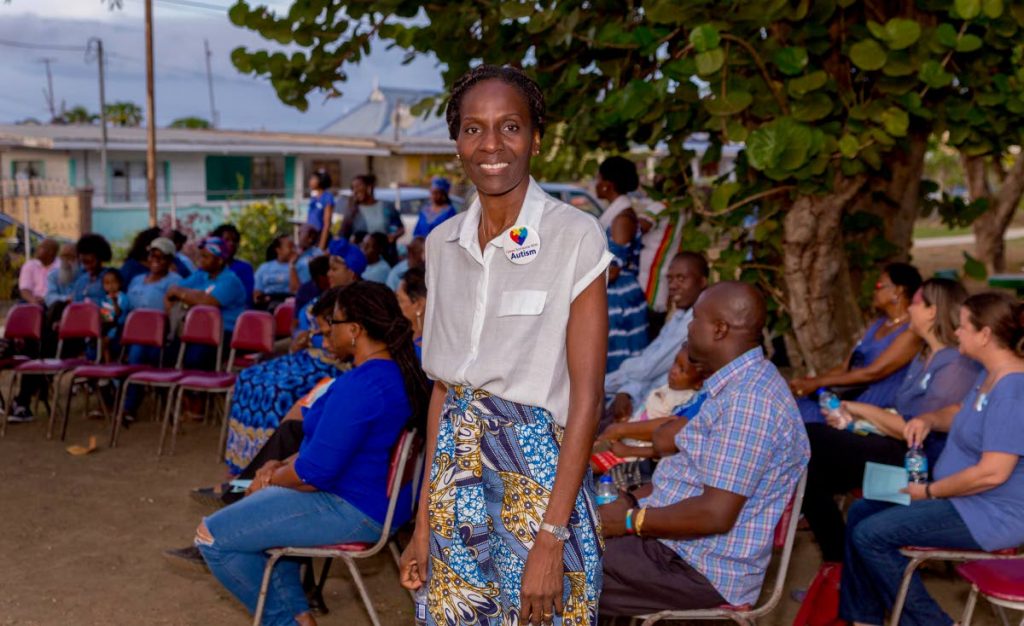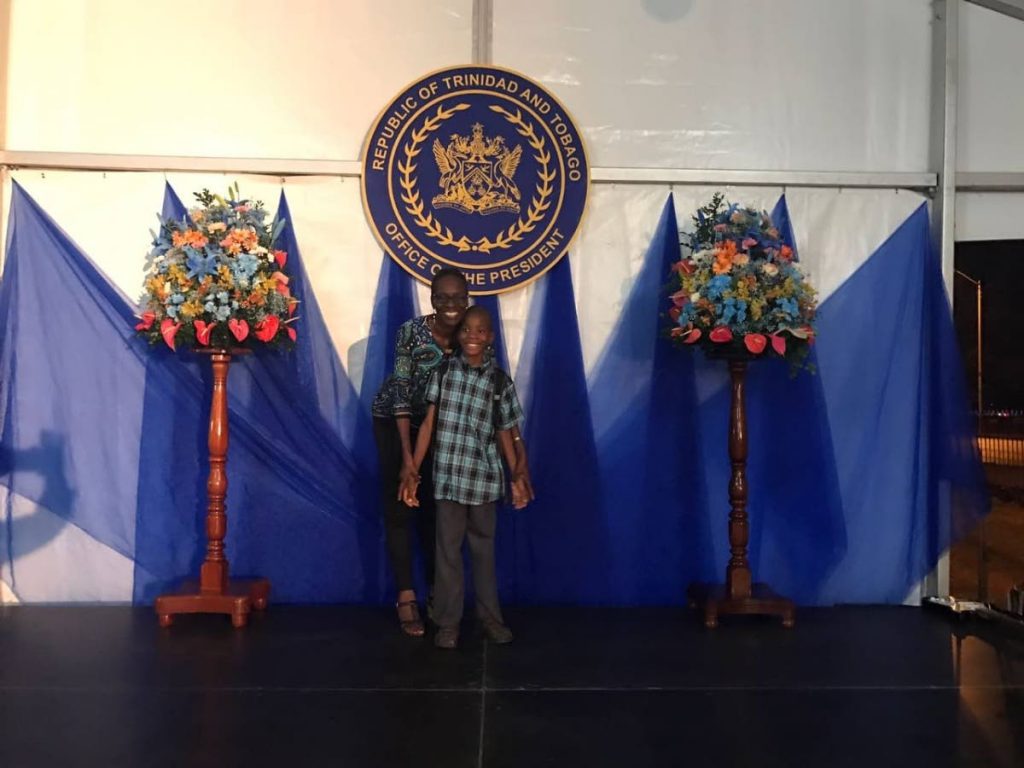Time for action

Newsday today begins an examination of the education and services available to those with special needs which has been the subject of debate for several weeks with exchanges between parents, NGOs and the Education Ministry. Given current observances for Autism Awareness Month, we feature the story of Autism Tobago's Ria Paria and her efforts to have support systems put in place in Tobago.
When Ria Paria realised her two-year-old son, Aiden, was not talking, she knew something was amiss.
She initially chalked it up to a developmental delay, acknowledging that not all children progress at the same rate.
But as time went by she found her son's inability to speak unsettling and considered seeking medical help for him in Trinidad.
That was before a friend referred her to a speech therapist in Tobago.
"At that time, I was thinking 'What to do about him?' He was already two and I find he wasn't talking," she said in a Sunday Newsday interview last Tuesday at Autism Tobago's second annual tree lighting ceremony at Milford Park, Bon Accord, Tobago.
Paria said the speech therapist told her about Autism Tobago and she immediately called the group, which, at that time, was already established on the island.
A teacher at Signal Hill Secondary School, Paria said the term autism spectrum disorder was not unfamiliar to her.
"I had heard about the word autism before, and I know about learning disabilities, because I am a teacher. But it is different when you are experiencing it."
Paria said since joining Autism Tobago she had found much comfort.
"It just started off as having somewhere to share and to vent and get information from other parents and to feel support so as not to feel alone.
"It was a really supportive initiative for me and it was nice just to meet other parents and to be a part of something."
Today, some years after Aiden's diagnosis, Paria is chairman of Autism Tobago, a role that has inspired her not only to do right by her now 11-year-old son, but to be in the vanguard of advocacy and action on the island. Since she took the helm of the organisation, Paria said awareness about autism in Tobago has increased.
"The divisions (Tobago House of Assembly) might call because they want to have something with their staff, and people have been calling my phone because of events in their workplaces or daycare centres."
The mother of two said some of her colleagues in the profession also have called her for advice in dealing with their autistic students.
"It is becoming more prevalent, so awareness is necessary.

"But it is more than just awareness. We want people to get into action. Lend a hand. Do something.
"We really want to see policies and different things put in place to help persons with autism, especially for children in school age."
Paria, who has been chairman for the past two years, said parents must try to have their children diagnosed early.
"That is the key, because there are many ways people can look at autism. But it is important to have them diagnosed before the age of five. If you are diagnosed, you know what you are dealing with.
"We have psychologists here now and if people suspect something with their child, they could go privately to have them diagnosed. If they see their child is not talking, check it out. Go to a paediatrician. Go to a doctor. Do research, something to help your child."
Paria said there are no statistics about the number of people living with autism in Tobago, a situation she intends to change.
"I have to find a way to get my statistics, because you can't just go into the health centre and ask for numbers."
She said, though, the Division of Health, Wellness and Family Development has promised to help the organisation with some statistics.
"They had a database in the past and they have started doing their own collection from that side. They are trying to do a database on disabilities on a whole and then, of course, we will get the autism information from that."
Paria said she has gained a wealth of knowledge by being involved with Autism Tobago. Unlike Down Syndrome, Paria said, people living with autism do not have a particular look. But they may display varying types of behaviour, including withdrawal and hyperactivity.
"There is no look (for children with autism) but it might be a miserable child, hyper, don't mix well or people might just think the person is bad-behaved."
She said there are many misconceptions about the condition.
"There are highly intelligent people with autism but they are seen as weird and not mixing. People can't put their finger on it because they can't see the disability unless the person's case is really severe.
"It is a puzzling disorder, because there are so many pieces to pull together where the disorder is concerned. But the research is continuous, because what is causing it is still unknown."
In this regard, Paria said the organisation's tree lighting ceremony is extremely significant because it symbolises awareness and hope. She said this year's autism awareness theme, Assistive Technologies, Active Participation, was timely because there is a need for people with the condition to be more fully integrated in society.
Paria said while there have been some "small steps" towards inclusion in schools and through services at hospitals, the work is far from over.
"I am leaning towards participation, where people with autism will become involved and included in schools and social settings. Once they are trained and taught, they can be actively included in all aspects of society."
Paria said later this year the organisation is planning a series of workshops for pre-school teachers and daycare providers "...because I am getting plenty calls from people with children who are pre-school age and don't know what to do with them."
In the interim, Paria urged parents and guardians not to hide their children because of shame.
"My son goes everywhere, but there are times he cannot handle the noises and he would prefer to stay away.
"But don't be ashamed of your child. Take them where you need to take them. Don't feel as though someone will judge you even though they may melt down in public. Just try to keep your cool, because some people just would not understand."


Comments
"Time for action"